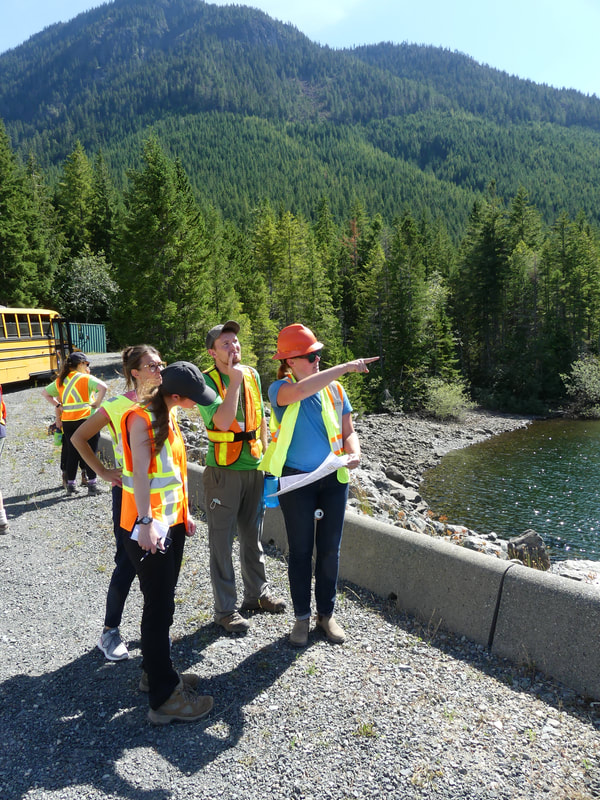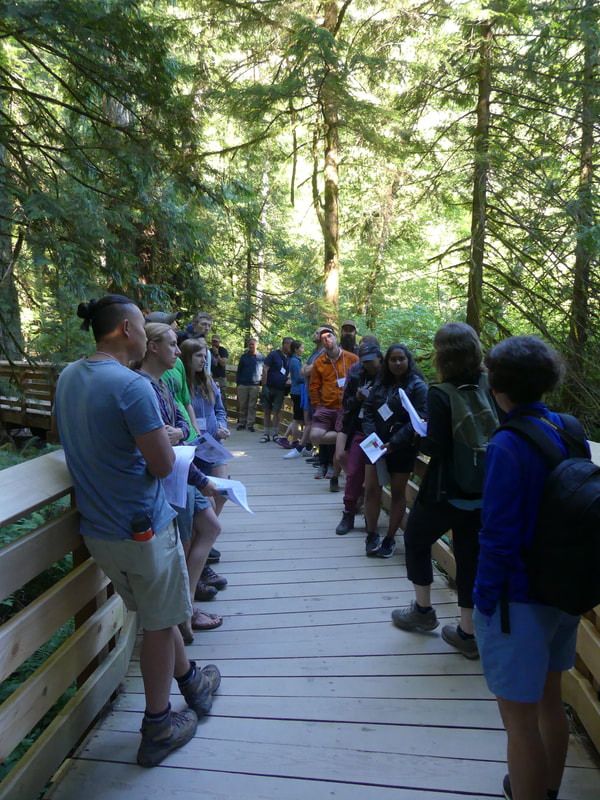|
A group of young professionals (YPs), made up of Master’s and PhD candidates from Universities across Canada, were inspired on their most recent source-to-tap training (ST3) week to document their experience. What resulted from this inspiration is a collaborative paper intended to be published in a water journal in 2023. “We want to highlight the personal and professional growth, specifically, the importance of learning about the current challenges faced by drinking water professionals and forest land managers. This was possible through our participation in the forWater Network,” Harshina Brijlall, UW PhD student collaborating on the paper. The main message of the paper is the importance of intradisciplinary training opportunities that provide interactions with professionals in the field and peer researchers in broader research areas. The paper will describe the benefits of participating in a network like forWater from the perspective of a young professional. Three self-identified themes of the paper include:
Will Fines, a UW Master’s graduate shared, “Getting hands-on experience, exploring the uncertainties associated with climate change, understanding the complexities of multi-stakeholder collaborations, and maintaining trust with community members was incredibly valuable.” Young professionals in the forWater Network attending the week-long source-to-tap training week on Vancouver Island. In addition, students expressed that the benefits from having informal in-person conversations with academics, industry professionals and other YPs cannot be overstated. These conversations build the framework for meaningful relationships that they can rely on throughout their careers. Beyond skill development and network building, the reality of climate change impacted landscape disturbances such as wildfire, floods, and hurricanes, that threaten the capacity of forests to provide critical ecosystem services, such as the provision of safe and reliable drinking water, is at the center of this paper. The uncertainties associated with climate change make it difficult for land managers to make sound decisions that will support these services now and into the future. Therefore, the authors of the paper express that current YP training needs to include preparations for these uncertainties, exposure to cross-discipline knowledge, and opportunities to work in highly collaborative and transdisciplinary environments. “The ability to connect with experts outside of our research focus and build relationships is essential to addressing these large complex challenges,” said Harshina. Thus far, the collaboration is going well, and a first draft is close at hand. The YPs are excited and engaged about the opportunity to share their experience. Congratulations to all the graduate students involved in this initiative. Anyone interested in getting involved can contact Harshina or Will [[email protected] or [email protected]]. The cohort that attended source-to-tap training on Vancouver Island in 2022.
0 Comments
Leave a Reply. |
forWater NetworkThe Network provides insights into new scientific research for safe, secure drinking water---globally---which starts with resilient forests Archives
October 2023
Categories |




 RSS Feed
RSS Feed

